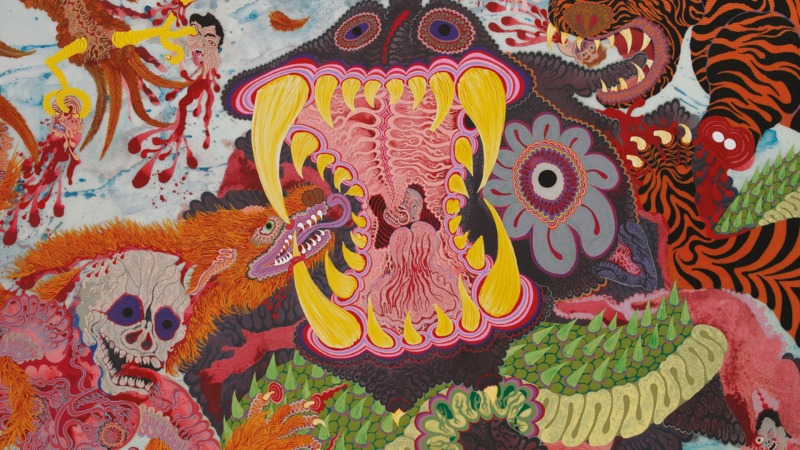There’s Nothing Funny But Plenty of Good on Pigs Pigs Pigs Pigs Pigs Pigs Pigs’ Death Hilarious
On the Newcastle band’s fifth album, taking the “scenic route” to Hell sounds downright pleasant compared to the route we’re on right now in the US, and perhaps in the UK, too.

It’s fitting that an album warped around anxieties about aging, and concerns over nostalgia, sounds like it’s been resting uncomfortably beneath a sweat-stained mattress for the last 30 years. Death Hilarious, the fifth release from Newcastle sludge metal institution Pigs Pigs Pigs Pigs Pigs Pigs Pigs (heretofore referred to as Pigs x7, for brevity and to spare my word count), is a nine-track exercise in orchestrated chaos that’s marinated in malaise and fried with distortion; it’s damn near miraculous that the band pulled off the difficult tightrope of dropping a metal record in 2025 that reads like a product of 1990s rock production, without betraying a trace of contemporariness.
Death Hilarious lands in the register of early stage Helmet, closer to Meantime with an occasional kiss of Betty; there’s a dose of Mastodon here too, in the abrupt and extreme tempo shifts that help shape the album’s character. Mostly, it’s the muffled squish of chord progressions fed through a meatgrinder, the dulled snap of a snare drum struck underwater. The muddied sound works in Death Hilarious’s favor, though, because what do pigs historically love wallowing in? In fairness, maybe this is what sliding into middle age sounds like—but whichever metaphor most tickles one’s fancy, the way the record’s overall tone reflects discontent is remarkable, starting on the first track, “Blockage,” where frontman Matthew Baty sings to audiences from the cold comfort of the grave.
“Now I am residing / deep within the earth / What would I have given for a second chance,” goes his howling lament. Three songs later, “Stitches” provides a teachable moment on the contradictions of maturing; here, unwittingly or not, Baty admonishes against the morbid self-reflection on “Blockage.” “Don’t look back,” he barks between verses, “it’s a trap.” No subtextual whiplash is suffered consequent to the way these two sets of lyrics disagree with one another, of course, because there’s no real disagreement. We’re all given to think about what might have been, how we could have lived different, or simply better, lives. At the same time, we’re aware that thinking too long about those alternate timelines is a stairway straight to Hell.
-

-

-

-

-

-

-

-

-

-

-

-

-

-

-

-

-

-

-

-

-

-

-

-

-

-

-

-

-

-

-

-

-

-

-

-

-

-

-

-








































